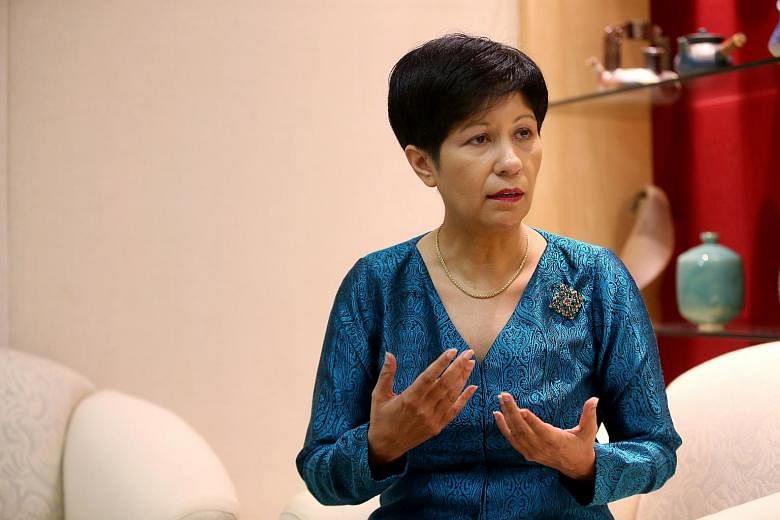Family lawyers need to be mindful of the potential impact of decisions taken in the course of a divorce because of the painful emotions involved.
Noting the child "too often" becomes a prize to be won by divorcing parents, Second Law Minister Indranee Rajah cited a case of a father who killed his own five-year-old son amid a bitter custody feud.
At a Law Society Family Conference earlier this month, Ms Indranee, senior counsel, said the Government would, in time to come, look at how it can enhance continuing education on family law so lawyers can equip themselves better going forward.
Phillipe Graffart, 42, was jailed for five years by the High Court in 2016 for culpable homicide while suffering from severe depression during the child custody battle with his estranged wife.
He had received an unexpected affidavit from her lawyers on the day before he was due to appear in the Family Courts. The affidavit referred to what he felt were private discussions with his wife.
"Feeling betrayed and exhausted by the legal battle, the father decided to kill their son and himself. He survived. Their son did not," said Ms Indranee.
She said she cited the case not to pin blame on the wife's lawyers, "who no doubt would have seen this as part and parcel of the normal course of litigation, where you put in what your client instructs or what you think is relevant".
She said: "The point I am making is that the things that are said and done in family litigation have an impact on people. And, it is an impact that can cut very deep. In certain cases, it can lead to consequences far beyond what the other side anticipated."
Ms Indranee cited another case in which the parents had different views about the school their daughter should be enrolled in and it took the High Court to break the deadlock.
Cases like these flag why family law is different from other areas like commercial law, she said, noting that family justice is about helping parties navigate a path of healing, restoration and positive transformation. "But in order to do this, the family justice system itself must transform. And lawyers must also embark on that journey of transformation."
She urged lawyers to become specialist practitioners "in their own right", serving as peacemakers, problem solvers and even at times, counsellors.
"I think as lawyers you need to understand what the underlying issue is and very often the issue is not legal," she said.
She added that the Government's role would be to set the right legislative frameworks and put in place the appropriate support structures.
The concerns arising from the same Graffart case were raised last week by Justice Debbie Ong, the Presiding Judge of the Family Justice Courts, who said it underlined "why it is important to support efforts to further train and equip family lawyers with the necessary skills - lawyers who are in tune with the needs of families and the ethos required in this new family justice system are critical to the success of our system".
Responding to the issues and suggestions raised, veteran family lawyer Rajan Chettiar said: "The message is timely and clear but the challenge is to put the message into practice. "For that you need to develop a framework to advance a non-adversarial approach. We are going in the right direction."


